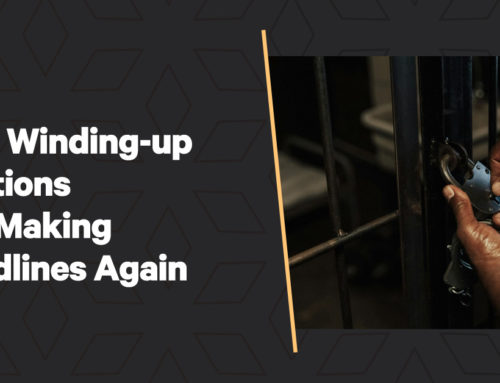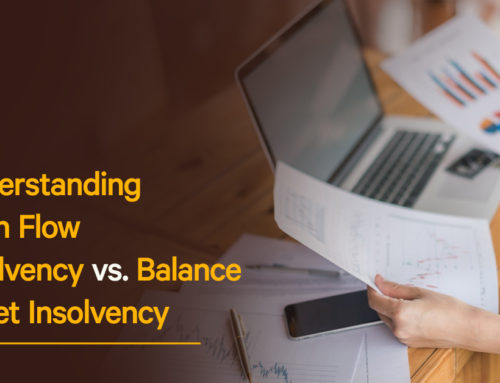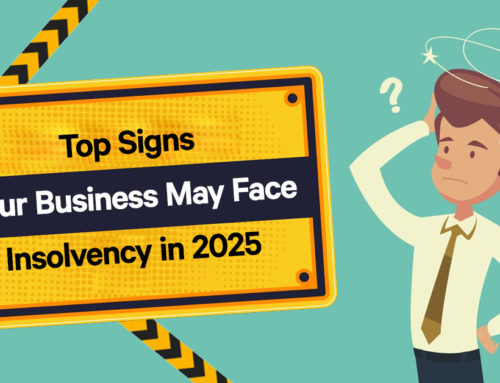When a company finds itself in financial distress, it will likely consider enlisting the help of an insolvency practitioner. These can help organisations manage their current situation and provide a realistic route to get out of it. As a business owner, it is important that you fully understand what an Insolvency Practitioner can offer your company and when it is appropriate to begin instructing them. We will discuss this in more detail below.
What Actually Is an Insolvency Practitioner?
An insolvency practitioner has the power to act on a company or an individual’s behalf whenever they face financial distress and potential insolvency proceedings. They also frequently work with the directors of companies who are solvent but have chosen to liquidate to extract any profits held.
Usually, a company director will be responsible for appointing an insolvency practitioner who they would like to help their company in times of financial hardship. However, there are some instances where the company director cannot do this; for example, if they are under compulsory liquidation, then the courts will appoint an Official Receiver, who will be responsible for acting as a provisional liquidator. If this is the case, later on down the line, it may be that an insolvency practitioner is appointed to take the liquidation further.
Is an Insolvency Practitioner the Same as a Liquidator?
One of the common questions that people have when they appoint an insolvency practitioner, is whether they are the same as a liquidator. The answer is yes and no. A liquidator is one of the roles that an insolvency practitioner carries out when appointed to act on behalf of a company. Different roles that they are responsible for include:
- Liquidator
When an insolvency practitioner acts as a liquidator, whether for a solvent or an insolvent company, their role is to realise all of the company assets and ensure that they are distributed to the necessary people. Usually, these people are creditors but could also be employees and shareholders.
- Administrator
An insolvency practitioner is also responsible for the administration of a company, both in terms of regular administration and pre-pack administration cases. They will be responsible for realising a better outcome for the company’s creditors by arranging a sale and facilitating proceedings in a straightforward manner.
- Nominee and Supervisor
In other instances, an insolvency practitioner will take on the roles of nominee and supervisor. Firstly, they will act as the nominee and be responsible for putting together a good proposal on behalf of the business (this is usually necessary during Company Voluntary Arrangements). They will also be responsible for putting together a Statement of Affairs where creditors will be told how much they can expect to receive should the proposal be accepted. These are helpful when working with a company in financial distress that wants to pay off its debts whilst not being liquidated.
What Are the Qualifications of an Insolvency Practitioner?
Due to the career path many insolvency practitioners go on, a large number of them will have backgrounds in accountancy. However, accounting qualifications do not necessarily mean somebody is a qualified insolvency practitioner.
To become a licensed insolvency practitioner, an individual must pass the JIEB (Joint Insolvency Examination Board) set of exams. They consist of two paper exams which will help assess whether or not an individual is ready to work as an insolvency practitioner and can deal with many problems that could come their way in the job.
Before enlisting the help of an individual or company, it is important that you check their credentials. Many companies might offer advice but don’t have licenced insolvency practitioners on their payroll. Instead, they will point you toward someone who can help and charge you for doing so. Make sure you are researching and working with an appropriately qualified firm.
Regulation of Insolvency Practitioners
Insolvency practitioners in the UK are regulated as per the conditions set out in the Insolvency Act 1986. They are subject to frequent inspections by whichever governing body applies to them. Several recognised professional bodies are out there, including the likes of IPA, ICAS and ICAEW. Whilst all these bodies are different, they adhere to the same strict guidelines.
How Much Does an Insolvency Practitioner Usually Cost?
Unfortunately, there isn’t a straightforward answer to this question. The cost of employing an insolvency practitioner will vary depending on your case. For instance, you may only be a small organisation with a few creditors, and therefore your case won’t take much time; on the other hand, if you are a large organisation with lots of outstanding debts, it will cost more to hire an insolvency practitioner as there will be more work involved. The fee will also depend on whether you are looking to reshuffle your business so you can carry on trading or whether you want to liquidate your organisation entirely.
Are You Looking to Hire an Insolvency Practitioner?
If you are looking to hire an insolvency practitioner, research different organisations to understand better who you would be most comfortable working with. At Leading UK, we have a team of experts who will take the time to analyse your company’s situation and then provide advice on how you can effectively move forward in a way that will benefit you and your creditors. If you have any questions or require further information, do not hesitate to get in touch.






